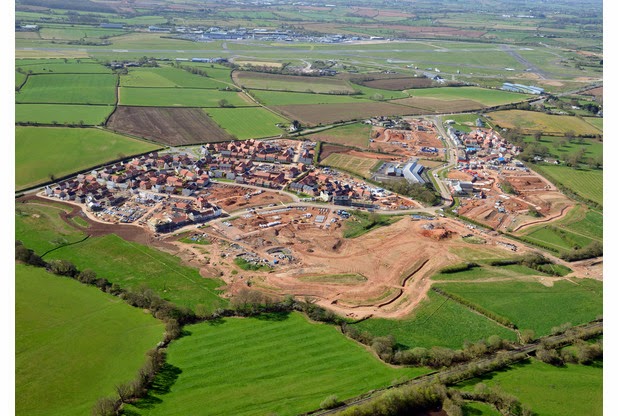For me, one of the
most exciting parts of being an estate and letting agent is putting a property
on the market that you know will get very high volumes of interest and sell or
let within a few days.
I recently put a house on the market for sale in
Broadfields. I listed it on a Friday
afternoon and knew it would generate a great deal of interest over the weekend
as similar properties do not come up too often.
It is a three bedroom semi-detached modern house with garage, parking and
good sized garden and is near excellent schools and amenities. Broadfields gives excellent access to the M5
so is popular for both people working in the city and those travelling further
afield.
Monday morning came, I checked through the weekends’
enquires and lo and behold there were lots for this new property. I called through the list, booking viewings
for the following day. It was impossible
to pick and choose which applicants to call first; some enquires come through with
lots of detail, such as their buying and selling position, availability of
funds best viewing times. Others simply
asked for more details, but in the end, any one of them could be our buyer. I managed to book one viewing for the
following day and a few more for later in the week.
Tuesday came, viewing day. I set off to the property with a copy of the draft
sales particulars in my folder as we were awaiting approval of the full particulars
from the seller; I had previously suggested to the sellers that although their
young child was delightful and very well behaved, I thought viewers may prefer
to have a viewing without toy cars and footballs being strategically thrown at
their feet to trip them over so they could look more closely at how well
decorated the property was. The sellers
had presented the property very well, the grass was cut, the beds had been made
and the lounge had been tidied. As the
viewing was in the morning there was still a delicious smell of fresh coffee in
the kitchen, always a welcoming aroma.
The viewers arrived and after introductions I started to
show them around the property. It is
usually very obvious from early on whether or not a viewer likes a property; there
are those who hide their emotions well but in the main the buying signals are
obvious. Being first time buyers this
particular couple had not yet learnt the art of concealment, after lots of “oh
wow’s” at the presentation of the master bedroom and “it’s amazing” references
to the open plan lounge/diner, I had a pretty good idea they were keen. I always enjoy showing and selling property
to first time buyers, they usually give off a strange sense of both excitement
and sheer terror at the thought they may become homeowners!
I let them have another look around the property and
discuss it between themselves without me looking over their shoulder, then said
thank you very much and they set off on their way home.
Shortly after getting back to the office I took a call
from the couple, asking to arrange another viewing with their parents. We did the second viewing on the same day and
they went away to have a think overnight.
Wednesday came, I opened my email and there it was, our
first offer for the property. I called
the vendors and discussed the position of the applicants and their offer. Estate agents work for the seller so my
priority and philosophy is get to the best price from the best buyer in the
best time, and from all the buying signals in this case I knew we would be able
to achieve a higher price for the seller.
Following many calls back and forth, we finally agreed a price. After informing our very nice first time
buyers we had agreed a price, solicitors were instructed and I sent out all the
relevant paperwork.
Then the fun began with the sales progression!
If you are looking to buy, sell or let a property in the
Exeter area please come in and see us at our South Street office or call on
01392 254488.
Below is a similar property which I am sure will not hang
around for long!














